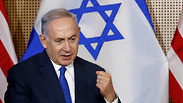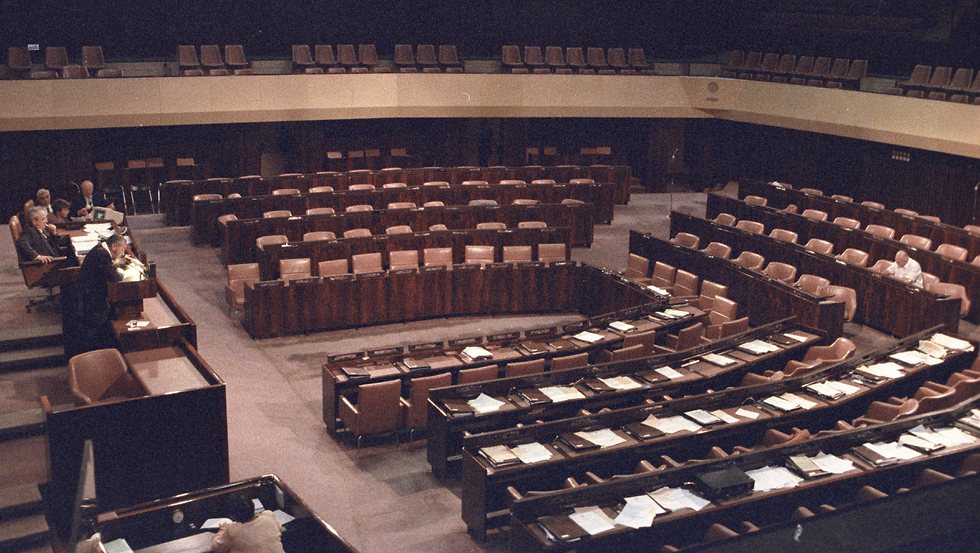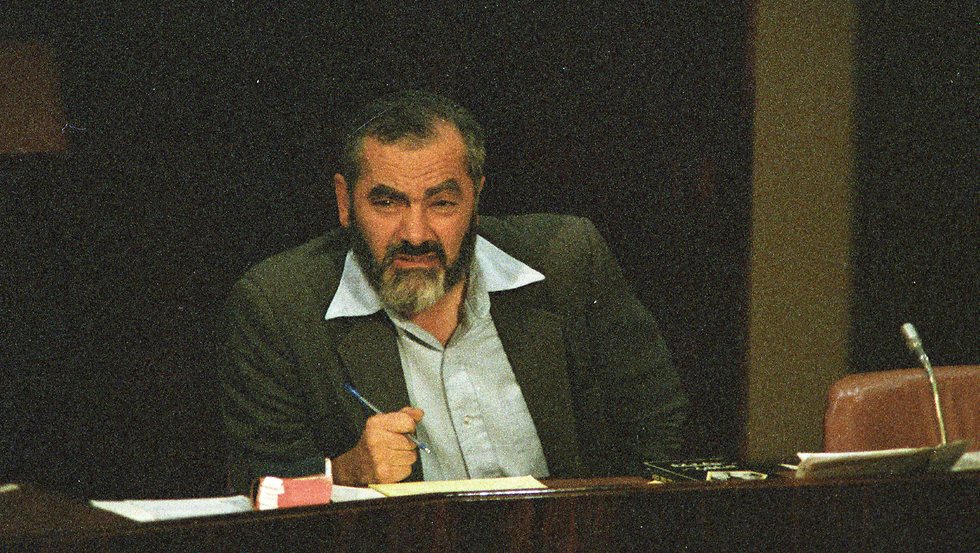

Why is Netanyahu pushing to embrace Kahane's successors?
Opinion: Racist, extremist Kahanism did not die with the racist, extremist rabbi who gave this ideology its name. His disciples and admirers walk among us and for some reason, Netanyahu has been lobbying to include them in a merger of small right-wing parties.
In 1984, Meir Kahane managed to get elected to the Knesset with his Kach Party. But then he hit the iron wall of Israeli democracy. In October 1985, he spoke in front of a near empty Knesset plenum and raised a no-confidence proposal. Almost none of the Knesset's members showed up, apart from two Shas members. A month later, Shas joined the rest of the parliament's parties in boycotting Kahane.
The Knesset speaker tried to stop Kahane from proposing racist bills. One of them called to revoke the citizenship of anyone who isn't Jewish, prevent non-Jews from being elected to any official position, banish them from Jerusalem, and finally make slaves out of Arabs and the rest of the gentiles. Another bill proposal barred contact between Jews and Arabs, including forbidding sexual relations between Jews and Arabs, setting up separate beaches, not allowing Arabs to live next to Jews, and forcibly breaking off mixed marriages.
Likud MK Michael Eitan compared these bills to the Nazi Nuremberg Laws, while the Israel Broadcast Authority (IBA) decided to reduce media coverage of Kahane due to his racist positions.
Kahane petitioned the High Court of Justice against the IBA's decision, and Justice Aharon Barak ruled in his favor. Despite the High Court's defense of the freedom of speech, Kahane was loathed by the political system because of his positions, but also because he was a successful demagogue. His ideology of hatred received broad support, to the point that a poll from 1985 showed his party could win 11 Knesset seats in the next elections, mostly at the expense of Likud.
Kahane presented a fundamental and political threat to the Israeli establishment: primarily, he tried to present Zionism itself as racism and turn Israel into an official apartheid state. As far as Israel's image is concerned, he essentially served Israel's bitterest haters. Politically, Kahane's party threatened to eliminate Likud's established, liberal right wing.
But then Basic Law: The Knesset was amended, so anyone who acts to destroy Israeli democracy, reject Israel's existence as the national home of the Jewish people, or incite to racism, would not be able to run for Knesset. This is how Kach was disqualified before the 1988 elections.
But Kahanism did not die with Kahane. His disciples and admirers walk among us. We have yet to read an interview in which they denounce and regret the positions of their master, a grotesque version of Lord Voldemort preaching about pure-bloods.
Michael Ben-Ari, a former MK from the National Union Party, defined himself in 2009 as "Kahane's successor." There's a video of him from a 2012 protest shouting that "all of the leftists are traitors" and saying that "there are no innocents in the Gaza Strip."
To the credit of the Israeli political system, it's important to note that such comments are indeed considered to be out of bounds by the great majority in the Knesset, including the right wing. But this is changing; the delegitimization of the left is coming straight from the Prime Minister's Residence these days, and the dehumanization of Arabs is done by ministers as well, not just former MKs.
In recent weeks, the prime minister has been working to bring about unity between the small parties on the right. Specifically, he has been pushing to have the party of Kahane's disciples be part of such a union, to the chagrin of the politicians in these parties. Traditionally, the religious-Zionist sector and Gush Emunim have rejected the Kahanist rhetoric, but it doesn't matter to Netanyahu anymore. He's worried about the Knesset seats that will be lost.
Prominent figures in the radical right are all of a sudden praised for their bravery and the fact they are no longer "ashamed" of Kahane; they've "matured" and now "no one will scare them" with talk of racism. And really, what's so bad about Kahane?
This is akin to Labor Party members suddenly announcing they are no longer afraid of declaring an alliance with the anti-Semitic Hamas or Azmi Bishara the traitor, and then go on to brag that this was "maturity."
In both cases (the real one and the made-up one), this isn't maturity, but ideological degeneration, a moral mark of shame. Democracy allows Kahane's disciples to run for office, under certain conditions, but it doesn't require the disgrace of the prime minister of the Jewish state lobbying for them.
Nadav Eyal is the foreign news editor for Channel 13 News.

















